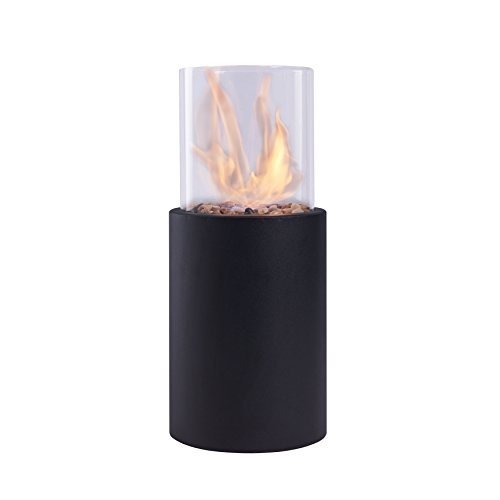What's The Job Market For Best Deals On Fireplaces Professionals?
The Ultimate Guide to Fireplace Stores: Everything You Need to Know
Fireplaces have actually long been a sign of heat, convenience, and design within a home. They create a centerpiece in living spaces and use a cozy atmosphere for friends and families to collect around. As an outcome, the fireplace market has seen a surge in need for various designs, designs, and devices. more info explores what to think about when checking out a fireplace store, kinds of fireplaces available, and responses to frequently asked concerns, offering an extensive overview for house owners aiming to buy.
The Importance of Choosing the Right Fireplace Store
Buying a fireplace is a substantial financial investment, making it necessary for property owners to choose a trusted and experienced fireplace store. Here are some reasons selecting the best store matters:
Wide Variety of Options: A trusted fireplace store offers a varied variety of fireplaces, including wood-burning, gas, and electric options. This variety guarantees that homeowners can find the ideal fit for their taste and needs.
Expert Guidance: Knowledgeable personnel can provide important insights into the advantages and disadvantages of each type of fireplace, helping clients make informed decisions.
Quality control: Established shops are more most likely to carry top quality items from reliable brands, guaranteeing consumer satisfaction and security.
Setup Services: Many fireplace shops use installation services and after-sales support, making sure that the unit is not just bought but is also correctly installed and kept.
Customization Options: Some shops provide custom-built fireplaces, dealing with special preferences in style, size, and performance.
Types of Fireplaces Available
When exploring a fireplace store, consumers will come across numerous kinds of fireplaces. Understanding these alternatives can help in picking the best one for a home.
1. Wood-Burning Fireplaces
- Description: Traditional type that utilizes wood logs as fuel.
- Advantages:
- Offers a timeless atmosphere and the crackling sound of burning wood.
- Can be more affordable in areas abundant in wood supply.
2. Gas Fireplaces
- Description: Uses natural gas or propane and ignites with the flip of a switch.
- Advantages:
- Easier to operate and maintain than wood-burning designs.
- Offers a consistent heat output and can be more energy-efficient.
3. Electric Fireplaces
- Description: Uses electrical power to produce heat and create a flame effect.
- Benefits:
- Requires no venting, making installation easier.
- Offers different settings for flame and heat intensity.
4. Gel Fuel Fireplaces
- Description: Uses gel fuel containers to develop a real flame without venting.
- Advantages:
- Portable and easy to set up.
- No requirement for a chimney or gas line.
5. Ethanol Fireplaces
- Description: Burns bioethanol fuel, providing a genuine flame.
- Benefits:
- Environmentally friendly with no smoke or ash.
- Can be utilized inside or outdoors.
Fireplace Type
Fuel Source
Vent Requirement
Installation Cost
Upkeep
Wood-Burning
Wood
Yes
Moderate
High
Gas
Natural Gas/Propane
Yes (or optional)
Low
Low
Electric
Electricity
No
Low
Very Low
Gel Fuel
Gel Fuel
No
Extremely Low
Very Low
Ethanol
Bioethanol
No
Low
Low
Factors to Consider When Shopping
When visiting a fireplace store, several elements should be taken into consideration before buying:
Space: Measure the area where the fireplace will be set up to make sure the chosen design fits comfortably.
Heating Needs: Assess the square video footage of the room to figure out the required heat output.
Design: Choose a fireplace that complements existing decoration, whether it's rustic, modern, or traditional.
Budget: Set a spending plan that consists of both the unit's purchase and installation expenses.
Regional Regulations: Check court codes regarding fireplace setup to ensure compliance.
Frequently Asked Questions About Fireplace Stores
1. What is the best type of fireplace for a home?
The “best” type depends on the property owner's requirements and preferences. Gas fireplaces are popular for their convenience, while wood-burning fireplaces use a traditional experience.
2. How much does a fireplace cost?
Costs can vary considerably based upon the type, design, and setup intricacy. Fundamental designs may start at a couple of hundred dollars, while custom systems can surpass numerous thousand.
3. Are electric fireplaces safe?
Yes, electric fireplaces are typically thought about safe. They do not produce genuine flames or emissions, minimizing the dangers connected with traditional fireplaces.
4. How do I preserve my fireplace?
Upkeep varies by type. Wood-burning designs need cleansing of the chimney and flue, while gas fireplaces may require yearly assessments. Electric fireplaces typically need very little upkeep.
5. Can I set up a fireplace myself?
While some electric and gel fireplaces can be set up as DIY jobs, it's normally best to hire specialists for gas and wood-burning fireplaces to guarantee safety and compliance with building regulations.
Selecting the right fireplace store is just as important as choosing the type of fireplace itself. Homeowners must weigh their choices carefully, considering aspects such as setup requirements, heating needs, and general visual appeals. With the best details and assistance from knowledgeable staff, clients can confidently select a fireplace that perfectly complements their home while providing heat and convenience for years to come.
